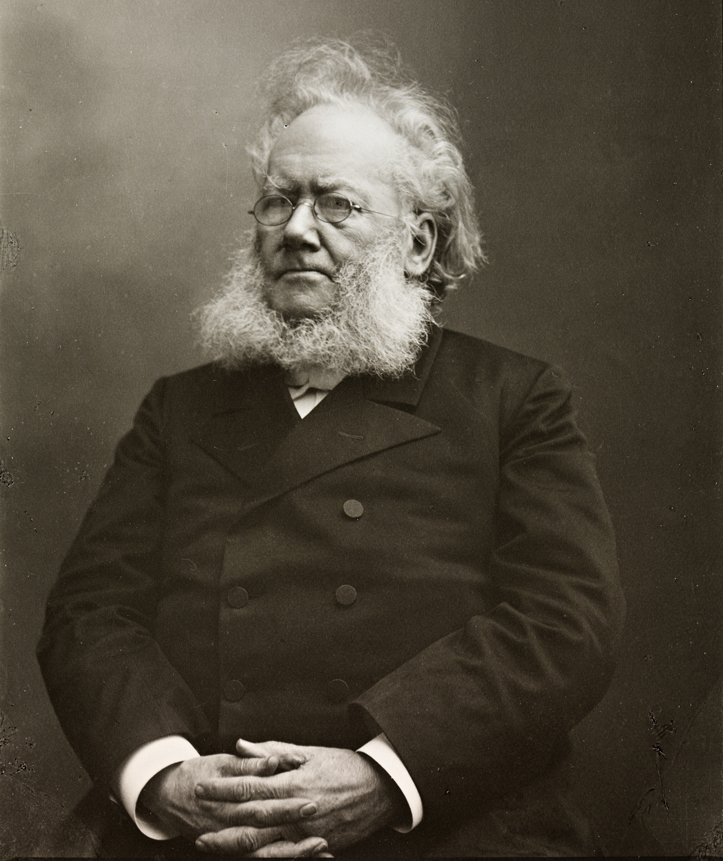Ibsen, Henrik (1828-1906), a Norwegian playwright, is recognized as the father of modern drama. When Ibsen began his career in the mid-1800’s, European drama offered little but artificial melodramas and frivolous farces. Popular well-made plays featured puppetlike characters and improbable situations filled with coincidence. Through his 26 plays, Ibsen reshaped these old forms with complex characters, lifelike dialogue, believable social and psychological motivation, and stories that addressed important issues.
His life.
Ibsen was born in Skien on March 20, 1828. His merchant father was a leader of local society until bankruptcy in 1835 disgraced the family and forced them to move to a rural cottage outside town. In 1844, Ibsen became a pharmacist’s assistant in Grimstad. There, a romance with an older servant resulted in the birth of an illegitimate child in 1846. Several of Ibsen’s dramatic themes were probably inspired by these early experiences, notably his emphasis on the hypocrisy of “polite” society, the destructive effects of secret guilt, the burden of the past, and the need for self-reliance.

Ibsen’s theater career began with the performance of his second play, The Warrior’s Barrow (1850). He served as writer-manager of the Norwegian Theatre in Bergen from 1851 to 1857, when he became artistic director of the Christiania Norwegian Theatre in Christiania (now Oslo). In 1858, he married Suzannah Thoresen, whose devotion brought him lifelong emotional security. In 1864, a grant for foreign study began a 27-year period of voluntary exile for Ibsen, mainly in Italy and Germany. During this time, he wrote his most enduring masterpieces. He returned permanently to Christiania in 1891. He died on May 23, 1906.
His plays.
Ibsen’s first period (1850-1873) consists mainly of verse dramas, most based on Norwegian history and folk literature. The best are Brand (written in 1865), a symbolic tragedy, and Peer Gynt (written in 1867), a fantasy.
Ibsen’s most popular works today are the prose “problem plays” of his second period (1877-1891). They are realistic studies of small-town life. In them, Ibsen exposed the deceptions and corruption that he saw in middle-class society. A Doll’s House (1879) explores the oppression of women. Ghosts (1882) portrays the terrible cost of inherited guilt. An Enemy of the People (1883) deals with community suppression of a truth that it finds inconvenient. The Wild Duck (1885) deals with the relative merits of reality and illusion. Hedda Gabler (1891) concerns the psychological dangers of social and sexual repression.
The plays of Ibsen’s last period (1892-1900) reintroduced the heightened symbolic intensity of the playwright’s early work. They reveal Ibsen’s mystical side, especially his interest in the workings of the unconscious and the individual’s struggle to achieve self-realization. The plays of this period are The Master Builder (1893), Little Eyolf (1895), John Gabriel Borkman (1897), and When We Dead Awaken (1900).
